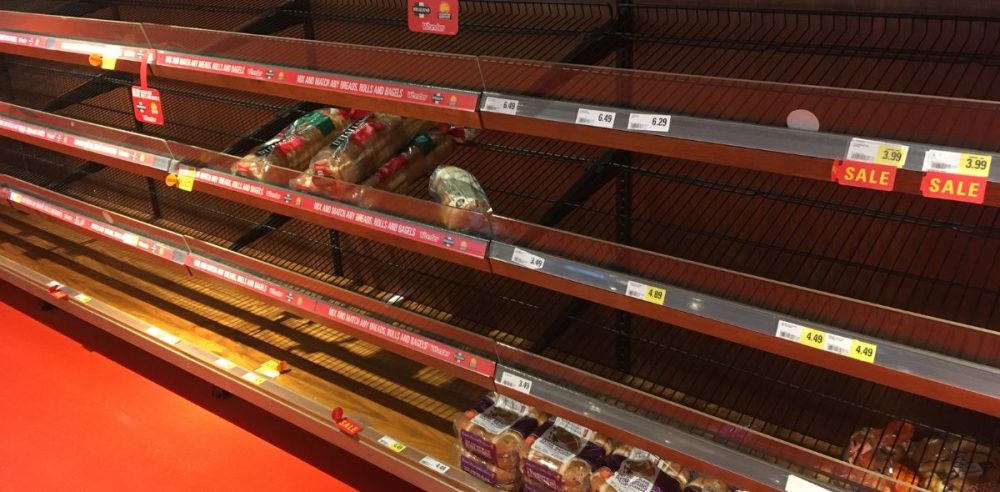Blame shoppers, not the dock workers’ strike, for the empty shelves at some local supermarkets and big box stores in North Texas, an economics professor asserted.
On Tuesday, nearly 50,000 longshoremen who work at ports on the East Coast and the Gulf of Mexico went on strike after contract negotiations between the International Longshoremen’s Association and the United States Maritime Alliance stalled. This triggered fears among some consumers of an impending shortage of goods.
However, Michael Davis, a professor at the SMU Cox School of Business, told NBC 5 DFW that panic-buying shoppers are the cause of a shortage of essential goods at some local stores, not the strike itself.
“At the very best, I can say that it’s premature, and frankly, it’s silly, because even if the strike goes on for a long time, there’s going to be ways to get essentials on store shelves,” Davis said, per NBC 5. He added that companies regularly prepare for supply chain issues.
In fact, North Texas may be better positioned to withstand the effects of the longshoremen’s strike than other areas of the country, including Houston, according to a report by the Dallas Observer.
Dallas, which sits at the intersection of major interstate roadways, has two large airports and is served by three rail lines. As such, Dallas has become a major distribution hub for the rest of the U.S.
Most of the freight that comes through North Texas originates from ports in California on the West Coast, where dock workers are not on strike, according to Terry Pohlen, director of the Jim McNatt Institute for Logistics Research at the University of North Texas.
“… When you look at freight volumes and things like that, most of the freight that comes into this market comes in from the West Coast,” Pohlen said, per the Dallas Observer. “The containers that come into Houston mostly stay in that market.”
Of note, President Biden has the authority under federal law to order the striking workers to return to work. Still, Biden has not signaled any intent to act on that law and has expressed support for the striking workers’ demands. His stance could change, however, if the impact on the U.S. economy worsens as Election Day draws near.


